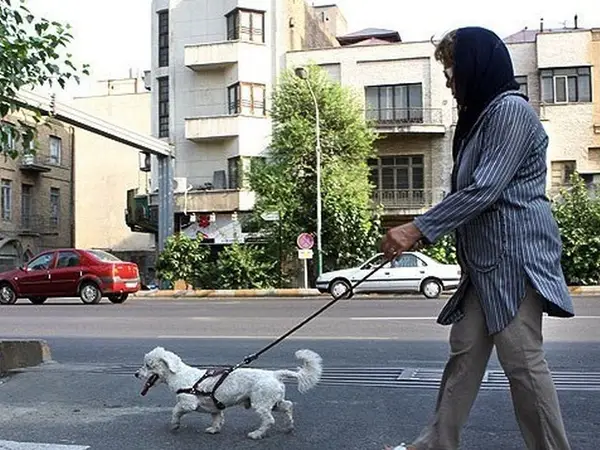Keeping pets has become a symbol of affluence in Iran, can be dangerous, and should be prohibited, a member of parliament from Esfahan province has suggested.
In a phone interview with Didban-e Iran news website Saturday, Mohammad-Taghi Naghdali defended proposed legislation by claiming a dog had killed children in a Tehran park. But in fact a more real reason for Iran’s conservatives is that keeping dogs is a symbol of Westernization, which they try to prevent.
A bill entitled "Protection of the Public's Rights Against Animals" was put on parliament’s agenda this week with the backing of 75 lawmakers. It would make illegal the buying, selling and keeping “pets” – from dogs and cats to snakes, hamsters, and rabbits.
Naghdali, a mid-ranking cleric and representative of Khomeini Shahr, argued that dogs can cause "serious nuisance and bodily harm to people" when left unattended in shared areas of apartment blocks.
Although the bill names all kinds of pets, even including crocodiles and monkeys, the main concern of parliamentarians is dogs. In July, the Kayhan newspaper called dog walking in cities a "major problem" and urged the judiciary to keep dogs away from public spaces including streets and parks. Tehran City council subsequently banned animals from public places.
Keeping dogs, always common in Iran’s rural areas and on farms, has only in recent years become popular in urban areas as Iranians have kept them as pets, despite occasional police crackdowns, particularly when dogs are spotted in cars. Within Islam, dogs are considered impure and some countries have tight restrictions: Saudi Arabia justifies its strict rules against keeping dogs in terms of the dangers of dogs attacking people, especially children.
Cats have never been a problem and have always been a part of urban and rural life, but the Islamic Republic wants to ban keeping dogs at urban homes.
Iran’s proposed legislation envisages a cash fine of $900-$2,700, with the animal being impounded. It would also oblige estate agents to ban dogs in rental agreements within three months of the law’s passing, with similar fines for non-compliance. Anyone walking a pet in the street could face a three-month jail term, or the confiscation of their car for three months if taking their dog for a drive.
The proposed law is yet another encroachment on citizens’ private life and adds another restriction to a multitude of other bans, such as drinking alcohol, dating, appearing in public without “proper Islamic dress” for women, mixed-gender parties, and singing for women.
Even the conservative Asre-Iran website attacked the proposal November 17 as a waste of parliament’s time. "Who is going to protect people's livelihood?” it asked in a commentary. “Why don't you propose plans for protecting people's assets in the stock market? Or why are you not doing something to increase the value of the national currency?”
